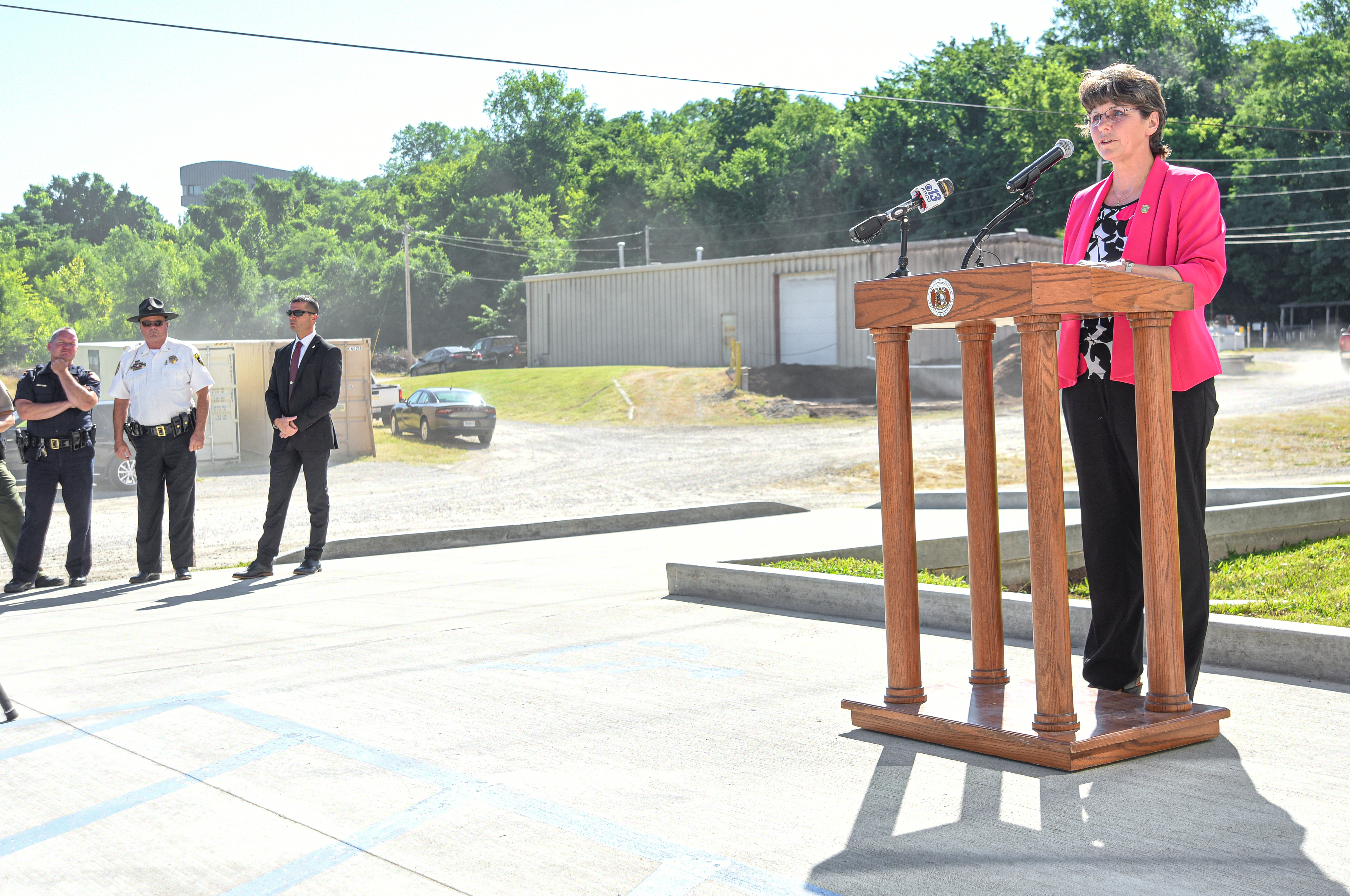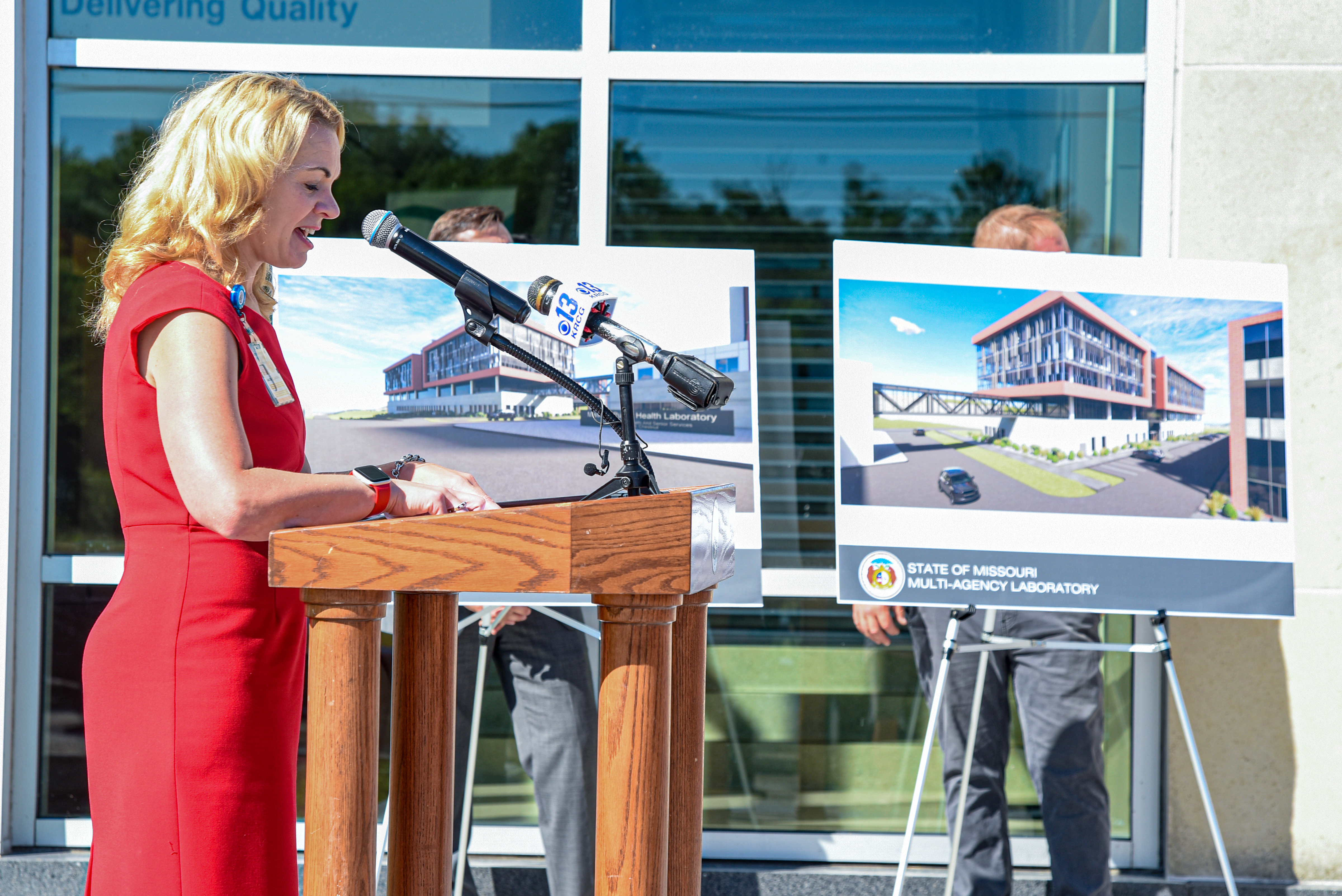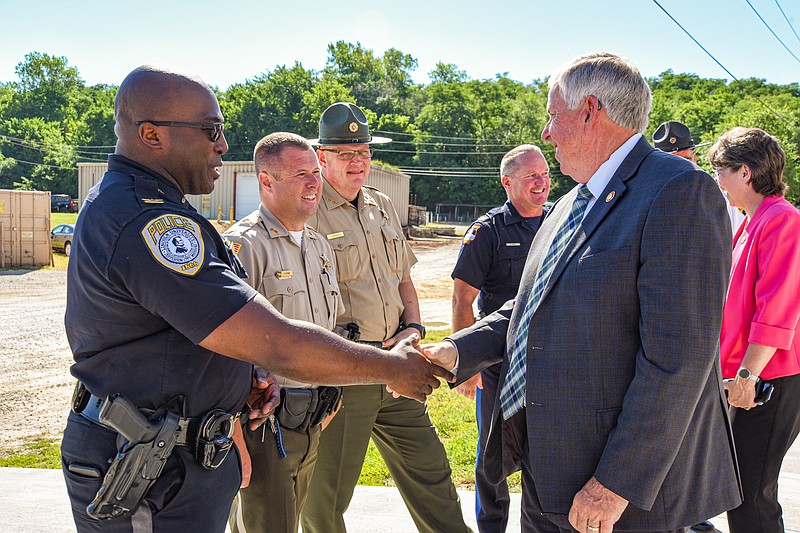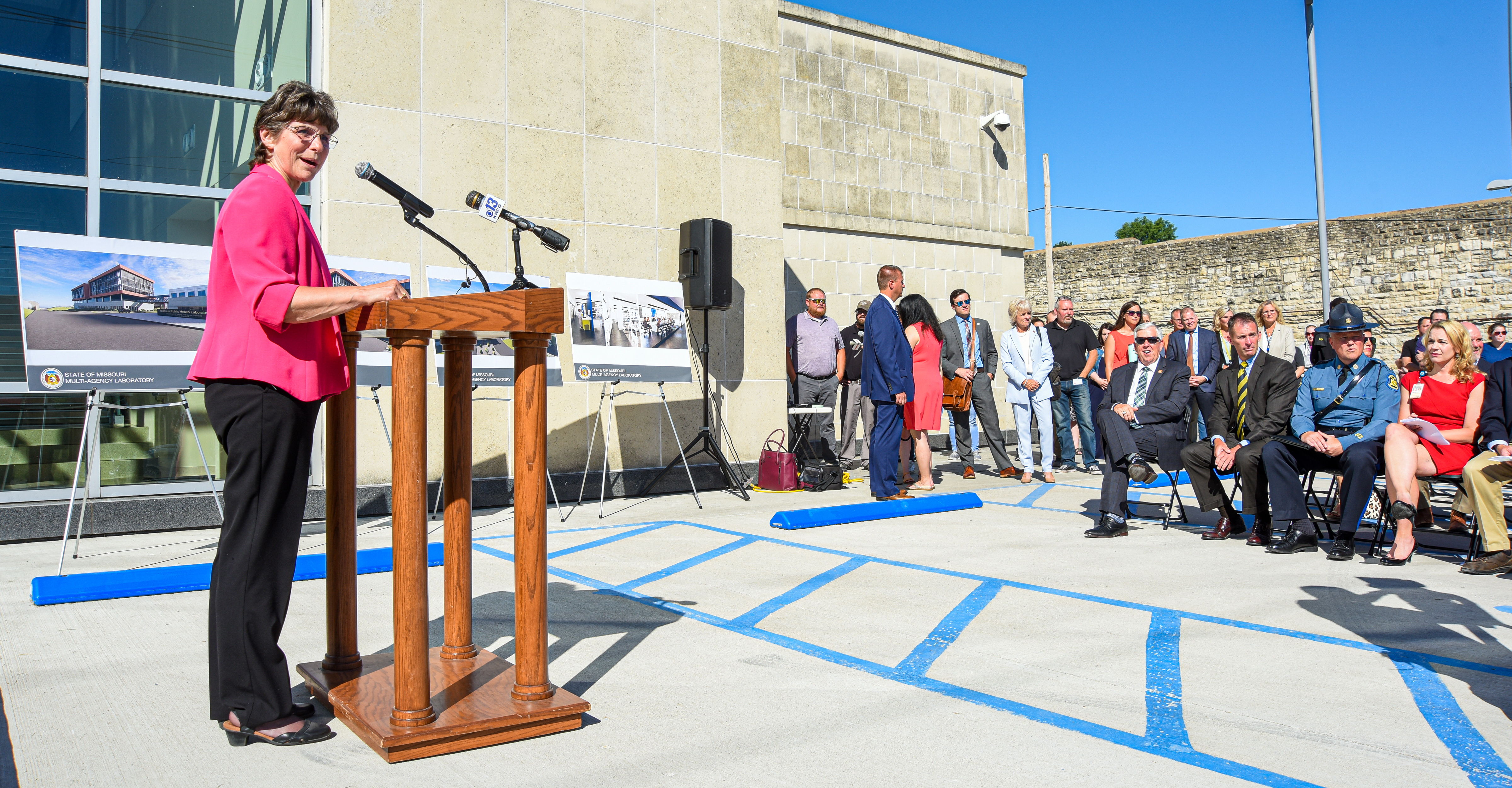Three bills Gov. Mike Parson signed into Missouri law Thursday affect wide-ranging aspects of health care.
Among the most emotionally charged segments of the bills are new statutes that include the No Patient Left Alone Act, part of House Bill 2116.
"It's a bill that probably a lot of people are going to have a lot of interest in. That was on the front burner during COVID-19," Parson said. "This is a good resolution -- a good way to make sure we address problems we didn't know we had in the beginning. Now that we've all been through this, figure out how we do it better the next time."
Hopefully, there won't be a "next time," he continued, but the state will be more prepared in case of similar health concerns.
The bill requires hospitals, hospice, long-term care facilities, or facilities operated or licensed by the Missouri Department of Mental Health to allow specified visitors to see patients during a governor- declared state of emergency.
Senate Bill 710 and HB 2116 state a facility may request a suspension of in-person contact for a period not to exceed seven days (although the suspension may be extended, but for no more than 14 consecutive days during a 12-month period).
The act allows residents of facilities (or their guardians) to designate an essential caregiver for in-person contact with the resident, establish in-person contact hours, and set procedures enabling physical contact between the caregiver and resident.
HB 2116 created the No Patient Left Alone Act, requiring hospitals to allow a designated compassionate care visitor during visiting hours. The act also states that 24-hour visitation should be allowed when reasonably appropriate.
"A lot of hard work goes into getting (bills) to the finish line," Parson said. "Today, we're at the finish line."
The bill's sponsor in the Senate, Sen. Bill White, R-Dade, Joplin, said the pandemic showed flaws in Missouri statutes, especially when federal suggestions were taken as mandates.
"There's no acceptable reason why we have patients dying without their spouses, without their children ... being isolated for periods of time," White said. "It was unacceptable. We came together and did a lot of work. We have the strongest bill, I feel, in the nation."
SB 710 includes Will's Law, which requires public and charter school nurses to develop health care plans creating procedures for dealing with students' epilepsy or seizure disorders.
Four-year-old Will Capps, whose family lives in Herculaneum, suffers from medical-resistant epilepsy. The condition, his father Adam Capps said, is characterized by seizures that are resistant to drugs, and causes mental and physical delays.
Will has dozens of seizures every day, some so slight they may go undetected by humans. So the family has a 2-year-old service dog who is trained to detect seizures.
"(However) in his condition, it makes it difficult for her because he's almost always having seizures," Capps said. "So she doesn't get a clean smell very often. So, it's hard for her to predict the big ones because he always smells like a seizure."
Amendments to SB 710 and HB 2331 incorporate several features of Rep. Dave Griffith's, R-Jefferson City, bill concerning organ donors. The bills allow money in the Organ Donor Program Fund to be used for educational initiatives, donor family recognition efforts, training and other initiatives.
They prohibit hospitals, physicians, procurement organizations or other persons from considering COVID-19 vaccination status of a potential organ transplant recipient or donor during any part of the transplant process.
During the final week of the legislative session, the Missouri House added another 20-plus amendments to SB 710 and sent it back to the Senate. However, the Senate stripped it of the amendments and returned the bill to the House before ending its session a day early.
The House was forced to agree with the Senate version or wait until next year to pass the legislation.
SB 710 and HB 2331 each modify home health licensing.
"Current law limits licensed home health agencies to those that provide two or more home health services at the residence of a patient according to a physician's written and signed plan of treatment," according to the bill summary for HB 2331. "This bill permits such licensed entities to provide treatment according to written plans signed by physicians, nurse practitioners, clinical nurse specialists, or physician assistants, as specified in the bill."
Also, the bill repeals a provision that requires physicians or health care providers who provide services to women with high-risk pregnancies to connect them with the Missouri Department of Health and Senior Services within 72 hours for referral for services.
The bill limits who must submit fingerprints for background checks for medical marijuana facilities.
Among the many things the bill does, HB 2331 establishes the "Time-Critical Diagnosis Advisory Committee," which is intended to improve time critical diagnosis and research endeavors, and to suggest policies and recommendations for change.
Shane Lockard, of the Johnson County Ambulance District (who attended the bill signing on behalf of the Missouri Ambulance Association), said the time-critical diagnosis system has been in Missouri for many years. It has grown and expanded.
The bill realigns and streamlines procedures, Lockard said.
Minutes and seconds matter following traumatic injuries, strokes and heart attacks. Citizens must recognize what is happening. Dispatchers must send the correct life support. Paramedic crews must evaluate and determine what's happening, and they must transport to the correct health provider.
"It brings a lot of the various places, where we had this (time-critical diagnosis) in law ... and kind of combines it," Lockard said. "It makes it a little easier to administer and work with."
 Julie Smith/News Tribune photo: Sandra Karsten, director of the MIssouri Division of Public Safety, stands in front of where the new multi-agency health laboratory will be built in the 100 block of Chestnut Street. Located directly across the street from the historic MSP site, the lab will have space for departments of Health and Senior Services, Conservation, Natural Resources, Agriculture and Missouri State Highway Patrol.
Julie Smith/News Tribune photo: Sandra Karsten, director of the MIssouri Division of Public Safety, stands in front of where the new multi-agency health laboratory will be built in the 100 block of Chestnut Street. Located directly across the street from the historic MSP site, the lab will have space for departments of Health and Senior Services, Conservation, Natural Resources, Agriculture and Missouri State Highway Patrol. Julie Smith/News Tribune photo: Shown in the background are renderings of the new facility of which Laura Naught, deputy director of the Department of Health and Senior Services, delivers details. She is excited about what having this new health laboratory and the collaborations that will be made possible will mean to the state and its citizens.
Julie Smith/News Tribune photo: Shown in the background are renderings of the new facility of which Laura Naught, deputy director of the Department of Health and Senior Services, delivers details. She is excited about what having this new health laboratory and the collaborations that will be made possible will mean to the state and its citizens.

